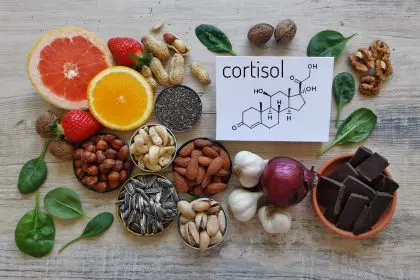In the whirlwind of family life, mothers often prioritize everyone’s needs above their own. This selfless dedication, while admirable, can come at a steep cost to their health. Heart disease and stroke remain leading causes of death and disability for women, with mothers particularly vulnerable due to the stresses of caregiving. Here are five critical ways mothers may be neglecting their health, unknowingly increasing their risk of heart attack or stroke.
Skipping the doctor’s appointment
For many mothers, regular health checkups fall to the bottom of an endless to-do list. Between work, childcare, and household management, finding time for preventive care seems impossible. However, these routine visits are crucial for detecting early signs of hypertension, high cholesterol, or diabetes – all major risk factors for cardiovascular disease.
A simple blood pressure reading or cholesterol test can be the difference between prevention and a life-threatening event. Mothers need to understand that these appointments are not indulgences, but essential investments in their family’s future.
Stress: The silent assailant
Chronic stress is a hallmark of modern motherhood, often accepted as an unavoidable part of the role. This constant state of tension takes a toll on the body, raising blood pressure, increasing inflammation, and weakening the immune system.
Many mothers push through exhaustion, ignoring clear signs of burnout. This chronic stress overload can lead to heart problems even in the absence of other risk factors. Stress management techniques, such as meditation or regular exercise, are crucial but often overlooked tools in preventing long-term cardiovascular issues.
The nutrition and exercise disconnect
Between school runs and career demands, many mothers struggle to maintain a balanced diet and regular exercise routine. Quick, processed meals often replace nutritious options, while physical activity takes a back seat to other responsibilities.
This combination of poor nutrition and sedentary lifestyle significantly increases the risk of obesity, high cholesterol, and diabetes – all major contributors to heart disease and stroke.
Even small changes, like a daily 15-minute walk or swapping out sugary snacks for fruits, can make a big difference in long-term heart health. The key is to start with manageable adjustments and build from there.
The sleep deprivation cycle
For mothers, especially those with young children, a full night’s sleep can seem like a distant luxury. However, chronic sleep deprivation is more than just an inconvenience – it’s a serious health risk.
Poor sleep affects the body’s ability to regulate blood pressure and blood sugar, both crucial for heart health. Studies have shown that consistently getting less than six hours of sleep per night can increase the risk of heart disease by up to 48%.
Sleep isn’t selfish – it’s necessary maintenance for the body and mind. Finding ways to improve sleep quality, even in small increments, can significantly reduce cardiovascular risks. This might mean setting a consistent bedtime routine, creating a sleep-friendly environment, or seeking help for sleep disorders.
Mental health matters
While physical health often dominates discussions of heart disease and stroke prevention, mental health plays an equally crucial role. Mothers struggling with anxiety, depression, or overwhelming stress often dismiss these issues, focusing solely on their family’s needs.
However, untreated mental health concerns can manifest physically, increasing heart rate, blood pressure, and stress hormone levels – all risk factors for cardiovascular problems.
Seeking help isn’t a sign of weakness – it’s a necessary step in maintaining overall well-being. Addressing mental health concerns can have a direct, positive impact on physical health, including lowering the risk of heart disease and stroke. This might involve therapy, support groups, or stress-reduction techniques.
Breaking the cycle of neglect
For mothers, prioritizing personal health isn’t selfish – it’s essential. Regular check-ups, stress management, balanced nutrition, adequate sleep, and mental health care are not luxuries, but necessary components of a healthy life.
By recognizing and addressing these common areas of health neglect, mothers can significantly reduce their risk of heart attack and stroke. In doing so, they’re not just protecting their own health, but ensuring they’ll be there for the moments that matter most with their families.
The message is clear: taking care of yourself isn’t just about living longer – it’s about being present and healthy for the ones you love. It’s time for mothers to put their health first, for everyone’s sake.
This story was created using AI technology.














